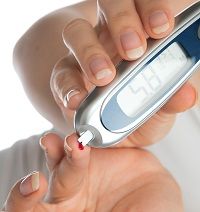Article
Diagnosing and Treating Diabetes: The Difficulties of Subtype
Author(s):
As many as 15% of diabetics may be misdiagnosed with simple diabetes mellitus (DM) types 1 or 2. But DM presents as more than 50 unique types, and even among correctly diagnosed type 2 patients, 60 predisposing genetic variants exist.

As many as 15% of diabetics may be misdiagnosed with simple diabetes mellitus (DM) types 1 or 2. But DM presents as more than 50 unique types, and even among correctly diagnosed type 2 patients, 60 predisposing genetic variants exist.
A team of British researchers summarize alternative DM diagnoses in a review article published in the December 2014 issue of Clinical Medicine. They urge clinicians to consider pesentation nuances when patients present atypically. Red flags include:
- Some children develop type 1 DM for reasons other than auto-immune β-cell destruction. DM that develops before age 6 months is more likely to be caused by a non-immune genetic mutation.
- Type 1 DM is unlikely if the patient continues to produce endogenous insulin from β-cells for more than 5 years after diagnosis.
- Type 2 DM patients are rarely slim, rather they tend to be overweight or obese. Glycosuria with normal blood sugar levels is a sign of an alternative form of DM. Young patients (<35 years old) without metabolic syndrome or insulin resistance are also unlikely type 2 DM patients.
The authors discuss monogenic DM, which includes hepatocyte nuclear factor 1 homeobox A gene maturity onset of the young (HNF1A-MODY). These patients have high HbA1C values despite insulin adherence and diet restrictions. They lack antibodies against their insulin-producing β-cells and have high C-peptide levels indicating continued insulin production. Drugs of choice include sulfonylureas rather than insulin, and dipeptyl peptidase 4 inhibitors may also be effective.
Ketosis-prone type 2 DM (also known as J, Flatbush, or type 1.5) is most common in people of Afro-Caribbean descent and leads to periodic bouts of diabetic ketoacidosis. Insulin controls high blood sugar when necessary, but causes low blood sugar at other times. Clinicians need to maintain patients on oral medications or diet restrictions without insulin when the disease is less severe.
Slim gestational diabetes patients who have slightly elevated blood sugar, family history of diabetes, diabetes only when pregnant, normal insulin sensitivity, and no β-cell destruction have a mutation in the glucokinase gene. Family should be screened, as this is an autosomal dominant disorder. Elevated fetal blood sugar causes excess glucose to accumulate in the fetal liver, bloat the abdomen, and the baby to lodge in the birth canal during delivery.
Clinicians should routinely screen patients for alternative DM diagnoses to ensure optimal care. The authors indicate that insulin is not always the preferred agent; sulfonylureas and dietary restriction may deliver better glucose control. Determination of specific genetic DM causes will optimize therapy as genetic screening becomes less expensive.




